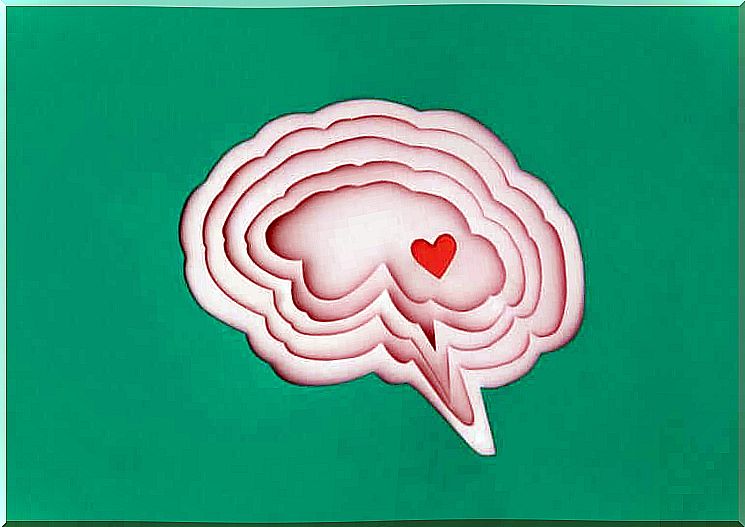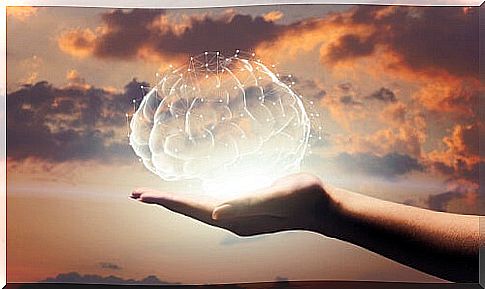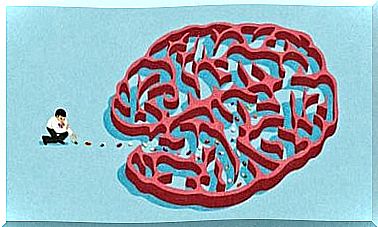Neurobiology Of Compassion, The Essence Of Prosocial Behavior

The neurobiology of compassion shows us an almost inspiring fact: one of the most significant instincts of the human being is attention and interest towards the other. It may be hard to believe, it is possible that many question that almost innate sense of empathy. However, there is something undeniable: the force of that altruism has also helped us to survive as a species.
Arthur Schopenhauer used to say that if there is no compassion in love, that feeling, far from being genuine, arises as a form of selfishness. It is true, however, this feeling is the backbone of something more than our relationships. This emotional reality drives many of our daily behaviors: when we do someone a favor, when we adopt a stray dog, when we help a stranger …
On the other hand, most of us understand compassion as an exercise in empathy that is also accompanied by altruistic action. However, this term refers to an emotional response. In fact, in most cases we limit ourselves to just feeling it, and the fact of experiencing this feeling generates notable changes and benefits at the brain level.
Therefore, it is interesting to discover those internal mechanisms that are orchestrated in our brain. Because compassion is much more than empathy …

Neurobiology of compassion, a brain prepared for prosocial behavior
The neurobiology of compassion and studies on it point to something important. Compassion is an instinct, a response that has always been embedded in the human being. Dacher Keltner, from the University of California, Berkeley, for example, points out that it is a natural and automatic response always oriented to guarantee our survival.
We even have studies with chimpanzees and human babies that reveal how compassionate concern for others is evident from a very early age. Now, it should be noted that in the world of adults there is a more complex fact. Our first impulse when we see someone suffering is to provide support and help.
However, studies, such as those carried out by Dr. Francesca Righetti (VU University of Amsterdam), tell us that, in most cases, this instinct is limited by peer pressure. The people around us, education and even the context itself can in many cases cut back on that prosocial impulse. All this is a real shame because at the brain level the reality is different: we are prepared to behave compassionately.
Two neural networks that orchestrate the neurobiology of compassion
In our brain, according to a study from the Department of Psychology and Neuroscience at the University of Colorado, there are two neural networks that drive compassionate feeling. On the one hand there is the dorsal medial prefrontal cortex and, on the other, the posterior cingulate cortex.
- Thanks to these structures, we are able to connect empathically, infer other people’s perspectives, beliefs and feelings, etc.
- Now, the most important thing is to be able to perceive the other as someone in need. Someone who could also benefit from our help.
These brain structures allow us three very specific processes. They are as follows:
- The first, to make an emotional connection (there is someone who suffers and I also suffer because of it).
- The second, a social inference (that person has a specific need).
- Last but not least is the sense of responsibility. Knowing that we can do something to improve the reality of that being is something just as relevant.

Practicing compassion changes our brain
The neurobiology of compassion also delves into another relevant aspect. Somehow, our society has developed much faster than our ability as a species to react to it. Stress is a constant element that is an obstacle to acting compassionately, both for ourselves and for others.
This is indicated by an expert on the subject. He is Dr. James R. Doty, clinical professor of neurosurgery at Stanford University and founder of the Center for Research and Education on Compassion and Altruism. According to him, our overstimulated nervous systems, caused by stress and anxiety, cause us to act more reactively (defensively) than compassionate.
Meditation and altruism to gain well-being
On the other hand, it has been proven that practices such as meditation and carrying out prosocial activities, wherever the compassionate attitude is present, generate notable changes in our brain. Charitable acts, for example, cause greater activation in the aforementioned neural areas; that is, in the dorsal medial prefrontal cortex and on the other, in the posterior cingulate cortex (Harbaugh, Mayr & Burghart, 2007).
Furthermore, if we were able to slow down, manage stress better, and practice altruism, caring for others, and compassion in all its forms, all of this would revert to our overall well-being. We would achieve, so to speak, a more meaningful life.
To delve a little deeper into this topic and discover more about the neurobiology of compassion, we undoubtedly recommend one of Dr. James R. Doty’s best-known books: The Magic Shop: A Neurosurgeon’s Journey Through the Mysteries of the Brain and the secrets of the heart.









